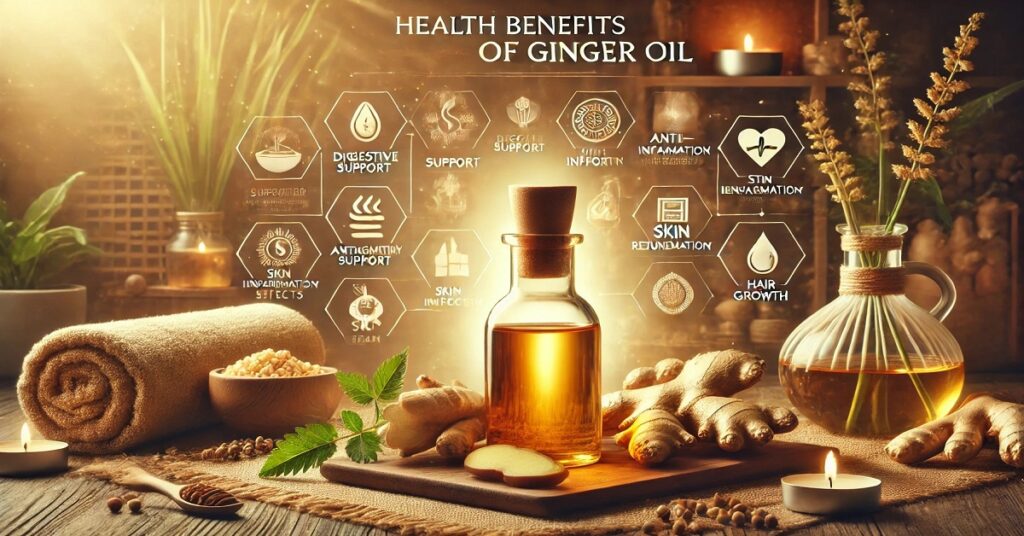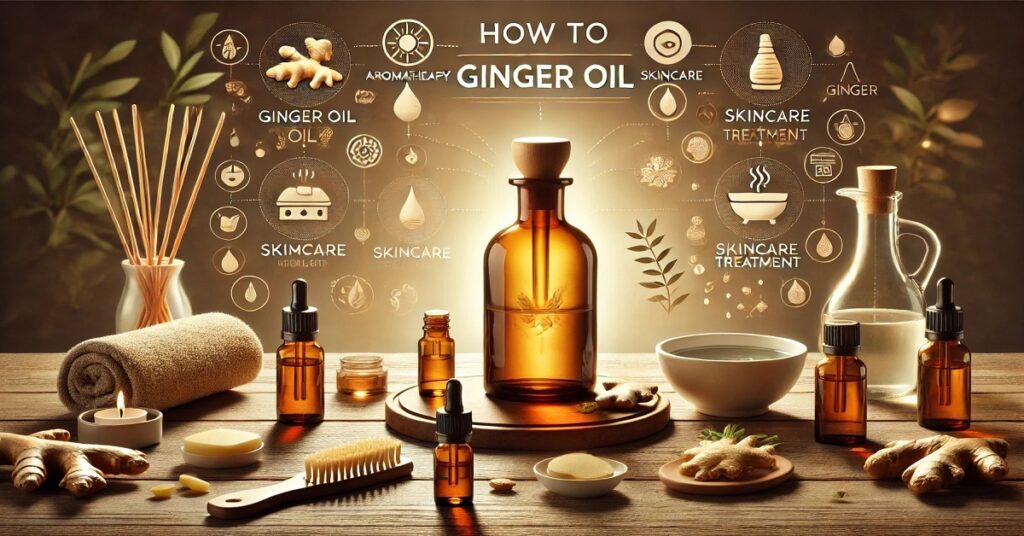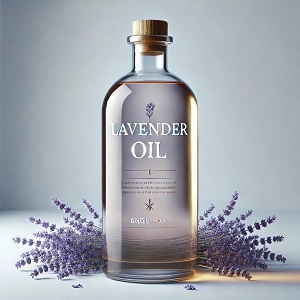
Ginger Essential Oil is one of the best natural remedies in the world. Ginger oil (Zingiber officinale) is taken from the root of the zingiber plant and has a warm, sugary fragrance that harmonizes well with nearly all essential oils. It draws from centuries of rich tradition like Chinese medicine or Ayurvedic practices, where it has to treat various ailments. That is why, even today, Ginger oil manages to woo users from all around by offering them natural fixes for digestion, inflammation, and respiratory health, along with skin care and hair care benefits.
This article will discuss the benefits of ginger essential oil and provide an overview of its ancient cultural significance and modern-day uses to help maximize health and well-being. Among its many other benefits, ginger oil could help kick digestion back into high gear or soothe joint pain, in addition to healthier skin and hair.
| Table of Contents for Ginger Oil |
|---|
| Introduction to Ginger Oil |
| Overview of Ginger Oil and Its Origins |
| – What is Ginger Oil? |
| – Origin and cultural significance across history |
| Extraction Process of Ginger Oil |
| – Key active components |
| Health Benefits of Ginger Oil |
| – Supports digestion and relieves gas |
| – Promotes joint health with anti-inflammatory effects |
| – Enhances blood circulation and heart health |
| – Boosts immune system |
| – Supports respiratory health |
| Beauty Benefits of Ginger Oil |
| – Skin Benefits: Clears acne and prevents aging |
| – Strengthens hair and prevents dandruff |
| How to Use Ginger Oil |
| – For digestive support |
| – For relieving joint and muscle pain |
| – For respiratory support |
| – For skin and hair care |
| Side Effects and Precautions |
| – Allergic reactions and skin sensitivity |
| – Potential drug interactions |
| Scientific Research on Ginger Oil |
| – Anti-inflammatory benefits |
| – Studies on digestive health benefits |
| – Research on immune system enhancement |
| Related Questions (FAQs) |
| – Is Ginger Oil Safe for Children? |
| – Using Ginger Oil for Digestive Issues |
| – How to Use Ginger Oil for Acne |
| – Internal Dosage Recommendations |
| – Best Practices for Hair Care |
What is Ginger Oil?
The Extraction Process of Ginger Oil through steam distillation from the rhizome of the ginger plant
This process contains gingerol, a powerful antioxidant and anti-inflammatory element that is very helpful in the body. This essential oil has a warm, spicy scent of fresh Ginger and is commonly used for aromatherapy or topically in many dietary supplements.
Active Ingredients Ginger oil consists of various bioactive molecules, namely gingerol and zingerones. These molecules provide the oil with solid anti-inflammatory, antioxidant, and antimicrobial activities, making it an effective essential oil for numerous health and elegance applications.
Ginger Oil in History

A Journey Through Time Ginger is a spice that transcends borders and has been in countless cultures for centuries. The ancient Egyptians used ginger oil in their embalming rituals, acting as a preservative and anointing agent. At the same time, Chinese and Ayurvedic medicine have held that Ginger relieves digestive pain or discomforts, including gas. Ancient Greeks and Romans also used Ginger in their diets. Even today, the uses of ginger oil are pursued fervently by organic health gurus and natural remedy enthusiasts worldwide.
Ginger Oil Health Benefits

Better Digestion, Gas Relief Improving digestion is one of ginger oil’s most common health benefits. It helps to reduce bloating, indigestion, and gas, making it a preferred remedy for digestive problems. Ginger oil contains carminative properties that stop gas-forming, help avoid digestive issues, and support a healthy gut.
Joint and Muscle Health Due to its anti-inflammatory properties, ginger oil is an excellent option for relieving joint pain, muscle soreness, and arthritis symptoms. When applied topically, it warms the area, increasing circulation and thus reducing pain and stiffness. Therefore, it is commonly prescribed for complaints such as osteoarthritis and rheumatoid arthritis.
Enhancing Circulation and Heart Health The warming qualities of ginger oil can help increase blood flow, promoting better cardiovascular health. Ginger oil improves and supports heart health by ensuring blood flows smoothly through the arteries, reducing the risk of blood clots. Better circulation can also reduce fatigue, allowing more oxygen and nutrients into vital organs and increasing daily energy levels.
Boosting the Immune System Ginger essential oil is a mighty immune enhancer because it contains antibacterial, antifungal, and antiviral properties. It is very beneficial for the body to build a resistant power to protect it from infections and maintain its overall good health. Inhale: Diffuse ginger oil when fighting colds, flu, and other illnesses to reinforce natural immunity.
Ginger oil helps with respiratory health. If someone has a cold, bronchitis, or asthma (or is simply having trouble breathing), ginger oil can help clear blocked airways and decrease mucus. Its anti-inflammatory attributes calm the respiratory system, allowing one to breathe better. When respiratory issues arise, use ginger oil by inhaling steam or mixing it with the chest rub.
Skincare benefits of ginger oil
Healthy Skin Ginger Its anti-inflammatory properties Personally, the inflammation of acne and other skin problems helps to get rid of wounds due to its antibacterial effect. When used externally by those with common health problems, it helps ease pain relief. A natural remedy for ginger oil can still be redeemed. Still, property disinfecting what toxin is in the body remains entrenched. That calms down redness, swelling, and inflammation to prepare the skin for healing. Ginger oil has antioxidants to prevent the skin from being damaged by free radicals responsible for signs of aging. Used diluted and in moderation, ginger oil can also help maintain the proper amount of natural oils on the skin while giving a smooth complexion.
Organic Hair oil massaging is also a good practice. Ginger oil for Scalp Treatment H3 is better hair and home care: ORGANIC HAIR OIL654963.post.yoast. It helps to strengthen hair follicles, reduce hair loss, and encourage new hair growth by increasing blood circulation in the scalp. It also aids in getting rid of dandruff and Dry scalp due to its antifungal properties. Diluting ginger oil in natural carrier oils such as coconut or argan allows for deep hair conditioning, which leaves the hair shiny and smooth to the touch so that it is manageable.
How to Use Ginger Oil

For Digestion, Food-grade ginger oil may help reduce bloating and an upset stomach when consumed in a cup of warm water or tea, 1–2 drops. This simple remedy can relieve discomfort and promote healthy digestion.
Joint and Muscle Pain Topical: Combine ginger oil with a carrier (like coconut or almond) to treat joint and muscle pain. Ginger oil warms the area where it is applied, improving blood circulation and reducing pain and stiffness.
Supports Respiratory Health Add a few drops of ginger oil to a bowl of steaming water. Breathe in the steam to clear out blockages and loosen mucus. Diluted ginger oil can also be used as a massage cream or chest salve to help with colds and bronchitis.
Skin Care: Add a drop or two of ginger oil to the usual moisturizer and serum for an elevated skin care regimen. The essential oil also has anti-inflammatory properties to combat acne and redness and help with its scar prevention benefits with improved skin texture.
Mix a few drops of Ginger with a carrier oil, such as jojoba or argan, for Hair Care H3: This will promote hair growth and treat dandruff! Rub the mixture onto the scalp and leave it on for 20-30 minutes before washing, as is expected.
Adverse Effects and Considerations
Allergic Reactions Before applying ginger oil to the skin, subject it to a patch test to determine whether it will have an allergic response. Combine a few drops of the oil with an odorless carrier and test it on a small skin area. If the skin does not show a reaction for 24 hours, then it is considered okay to use.
Drug interactions: Ginger oil can interact with certain drugs, especially blood thinners and diabetes medications. If a patient takes prescription medication, check with the healthcare provider before using ginger oil internally.
Embrace the might of ginger oil.
With its incredible antiseptic and anti-inflammatory power, ginger oil is used for various purposes, both internal and external. Ginger oil is a beautiful addition to the wellness routine, whether for digestion, pain relief, circulation problems (cubidding_argsa%%), or skin and hair care. Always do the due diligence in putting it out of use for dilution and seeking guidance from healthcare professionals when warranted. , ginger oil is a versatile product.
Research on the Efficacy of Ginger Oil
Several researches have shown the medicinal qualities of ginger oil. Active compounds like gingerol found in them have anti-inflammatory, antioxidant, and antimicrobial effects. Here are some of the critical studies that show just how potent ginger oil can be:
Anti-Inflammatory Advantages—Study A 2018 research paper published in the Journal of Pain Analysis revealed that ginger oil has vital anti-inflammatory properties. The study discovered that the external application of ginger oil effectively reduced pain and swelling among patients with rheumatoid arthritis. The leading movement in two locations significantly reduced inflammation and improved joint movements.
Digestive Health Research Findings A study featured in the 2015 Food and Nutrition Research issue claimed that ginger oil has a lot to offer digestive health. The research found that ingesting ginger oil in low doses reduced bloating, gas, and indigestion. It concluded that ginger oil is an effective compound for improving digestive health and minimizing abdominal discomfort.
Strengthening the immune system: Research published in the Journal of Immunology in 2020 has demonstrated ginger oil’s immune-strengthening potential. However, when applied as aromatherapy, this ginger essential oil can boost the body’s ability to battle bacterial and viral infections, making it sick less frequently, thus building wellness.
FAQ About: Ginger Oil

Can children use ginger oil?
Ginger oil can be used on children, but not at full strength. It must be used with a carrier oil like coconut (or olive) since it is too strong for the skin. Ginger oil should not be on young infants or tiny children without first speaking with a pediatrician.
How Does Thy Use Ginger Oil For Digestion?
Add 1-2 drops of food-grade ginger oil to a warm glass of water or tea before eating for better digestion. They can also massage the abdomen with diluted ginger oil to help improve digestion and reduce bloating and gas.
Does Ginger Oil Work for Acne?
Is ginger oil good for acne? Mix the oil with jojoba to water it down, then use it on acne-prone skin to diminish inflammation.
Can We Take Ginger Oil Orally?
Edible ginger oil in tiny doses, 1-2 drops. One common way is to add it to a favorite tea, water, or juice. However, one must get the advice of a healthcare professional before taking ginger oil if they are taking any medications or suffer from any severe ailment.
How to Use Ginger Oil for Hair
Combine a few drops of Ginger with argan or coconut oil to strengthen hair and decrease dandruff. Gently massage the mix and let it sit for 20–30 minutes before washing the hair. That will improve blood circulation and moisturize the scalp, resulting in healthy hair. Does Ginger Oil have any Side Effects?
Skin irritation High concentrations or undiluted, such as neat (i.e., not diluted with a carrier oil) ginger oils can irritate the skin in some people. A patch test will be a good idea to prevent allergies from flaring. Additionally, those using blood thinners or diabetes medications should speak with their physician before considering the use of ginger oil, as it can have potential interactions.
Quick Summary of Ginger Oil
Ginger oil, extracted from the rhizome of the ginger plant, is known for its warm, spicy aroma and numerous health benefits. This versatile essential oil is rich in antioxidants and anti-inflammatory compounds, making it a natural remedy for digestion, immune support, and respiratory health. In skincare, ginger oil soothes irritated skin, enhances skin tone, and promotes a radiant glow, while for hair, it stimulates growth and adds shine. Widely used in aromatherapy, ginger oil also aids in reducing stress and enhancing focus. While edible in food-grade form, it should be used cautiously and in minimal amounts. With its diverse wellness, beauty, and relaxation applications, Ginger remains a cherished essential oil in natural health routines.


